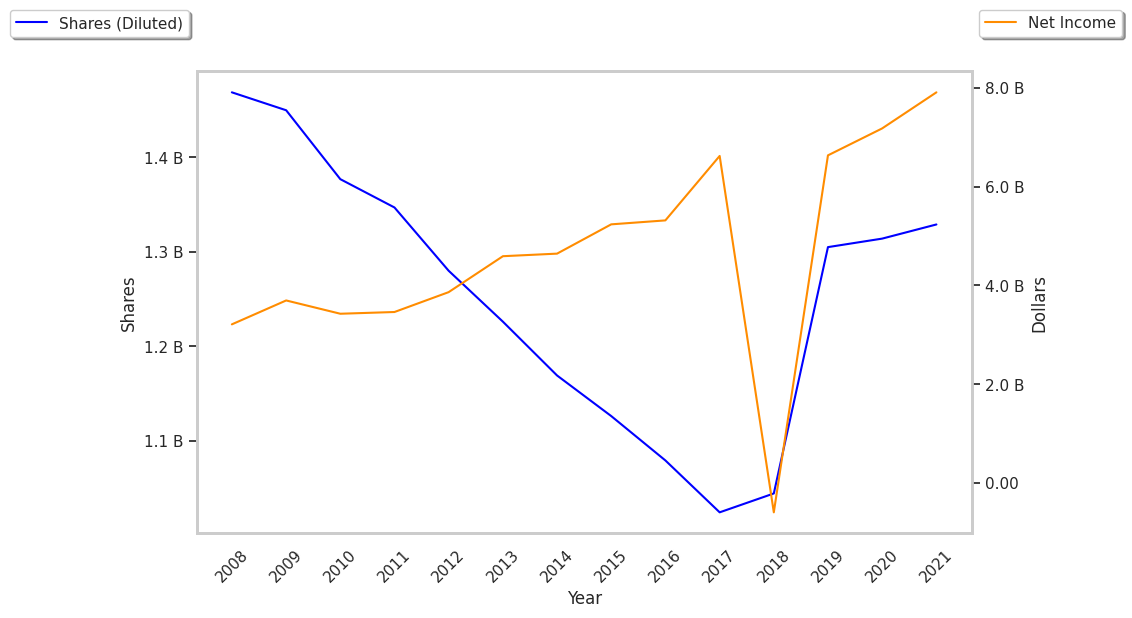Standing out among the Street's worst performers today is CVS Health, a pharmaceutical retail company whose shares slumped -8.6% to a price of $72.75, 17.19% below its average analyst target price of $87.85.
The average analyst rating for the stock is buy. CVS lagged the S&P 500 index by -8.0% so far today and by -23.5% over the last year, returning 4.3%.
CVS Health Corporation provides health solutions in the United States. The company is in the consumer defensive sector. It markets so-called staple goods and services that consumers tend to purchase regardless of their discretionary income. Thus, sales revenue tends to remain relatively unchecked by economic downturns, which in turn can contribute to share price stability. The flipside is that defensive stocks may see comparatively little growth during periods of economic growth.
CVS Health's trailing 12 month P/E ratio is 11.2, based on its trailing EPS of $6.47. The company has a forward P/E ratio of 7.9 according to its forward EPS of $9.22 -- which is an estimate of what its earnings will look like in the next quarter. The P/E ratio is the company's share price divided by its earnings per share. In other words, it represents how much investors are willing to spend for each dollar of the company's earnings (revenues minus the cost of goods sold, taxes, and overhead). As of the first quarter of 2023, the consumer staples sector has an average P/E ratio of 21.21, and the average for the S&P 500 is 15.97.
To better understand CVS’s valuation, we can divide its price to earnings ratio by its projected five-year growth rate, which gives us its price to earnings, or PEG ratio. Considering the P/E ratio in the context of growth is important, because many companies that are undervalued in terms of earnings are actually overvalued in terms of growth.
CVS Health’s PEG is 2.59, which indicates that the company is overvalued compared to its growth prospects. Bear in mind that PEG ratios have limits to their relevance, since they are based on future growth estimates that may not turn out as expected.
Another valuation metric for analyzing a stock is its Price to Book (P/B) Ratio, which consists in its share price divided by its book value per share. The book value refers to the present liquidation value of the company, as if it sold all of its assets and paid off all debts). Cvs health's P/B ratio indicates that the market value of the company exceeds its book value by a factor of 1.23, but is still below the average P/B ratio of the Consumer Staples sector, which stood at 4.12 as of the first quarter of 2023.
CVS Health is likely fairly valued at today's prices because it has a Very low P/E ratio, a lower P/B ratio than its sector average, and No published cashflows with an unknown trend. The stock has strong growth indicators because of its decent operating margins with a stable trend, and a PEG ratio of less than 1. We hope this preliminary analysis will encourage you to do your own research into CVS's fundamental values -- especially their trends over the last few years, which provide the clearest picture of the company's valuation.



